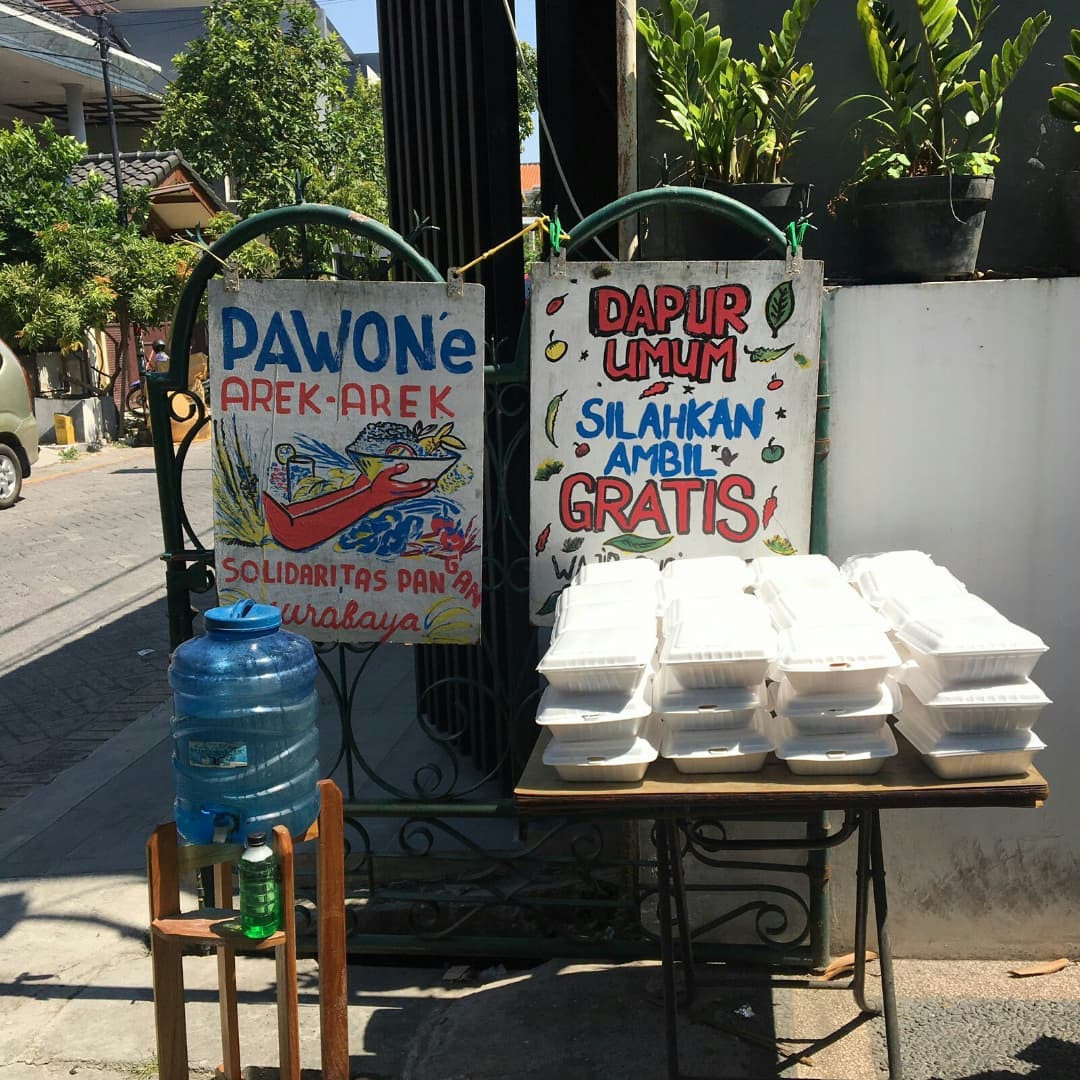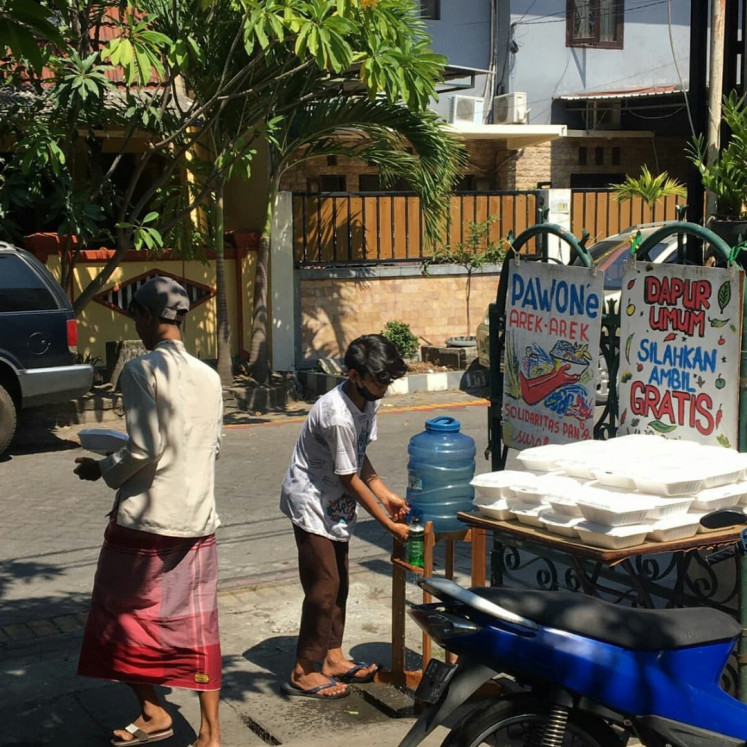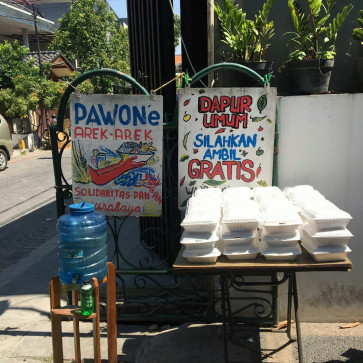Popular Reads
Top Results
Can't find what you're looking for?
View all search resultsPopular Reads
Top Results
Can't find what you're looking for?
View all search results'This is protest, not charity': Community-run kitchens empower the people
As food became scarce, community-run kitchens were sometimes the only thing standing in the way of people and starvation.
Change text size
Gift Premium Articles
to Anyone
A
s food became scarce and people lost their livelihood during the pandemic, community-run kitchens were sometimes the only thing standing in the way of them and starvation. However, they insist this is not simple charity.
“They were forced to stay home, they were jobless, they had no money, and they were hungry,” said musician and community organizer Herry Sutresna. “Naturally, everything kicked off.”
As the pandemic left many communities destitute and hungry, community-run kitchens began popping up across the country. Run by amateur chefs, overnight farmers and hardened community organizers along with a diverse array of locals, these kitchens provide sustenance and hope to many in a time of precarity.
For everyone: Locals wash their hands and take food from Pawone Arek-Arek's kitchen in Surabaya. (Courtesy of Pawone Arek-Arek) (Personal archive/Courtesy of Pawone Arek-Arek)
Most began as firefighting exercises -- calls to aid stricken communities in mountains and urban slums. But as the economic realities of the pandemic hit even harder, they gradually expanded into community gardens, mutual aid programs and even experimental community economy networks.
“It’s a simple principle, replicated all over,” Herry continued. “People didn’t want to wait for a miraculous intervention by the government. So they took matters into their own hands.”
Mapping out the problem




















